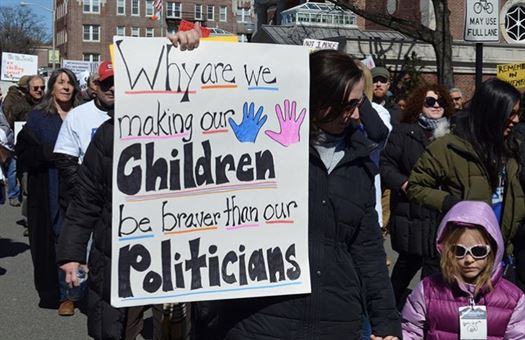Immediately after Americans found out on Nov. 8, 2016 that Donald Trump would be the 45th president, there has been a push from liberals for people interested in social justice to be more involved in elections.
The 47 percent of eligible voters who did not vote in the 2016 election are sometimes cited as the primary reason that Trump won the election. As a result, many liberals have been suggesting that more people voting is the best way to combat many of the inhumane policies of the Trump administration.
Yes, voting is important, but to suggest it as a primary strategy of resistance to inhumane politics is not enough. In order to push society forward, it is not enough to simply “Remember in November,” a slogan many liberals like to use. Change is only caused by a society making their voices heard year-round and employing every means to social change that they can.
No major push for human rights in history was won through voting alone. The LGBTQ+ movement started as a riot in which transgender women challenged the unjust laws at the time by throwing bricks at their oppressors. The Civil Rights Movement was largely successful due to the number of public disruptions and large scale protests, such as marches and sit-ins, that drew attention from news outlets all over the country.
Even some workers’ rights, which many people take for granted, such as child labor laws and the 40-hour work week, were not won through voting but through large groups of united workers refusing to do the jobs asked of them until their rights were secured. If any of these movements had based their tactics on voting alone, it is likely that they would not have made the significant historical changes that they did.
The concept that we as a society can wait for election cycles and the time it takes to pass policies in order for change to happen is a privileged stance. For immigrant families being torn apart every day, civilians in Middle Eastern countries whose towns are being bombed by U.S. drone strikes, African-American citizens being given life sentences for minor victimless crimes or being murdered by police, and countless other oppressed communities, the time it takes for an election to happen could mean life or death.
Waiting around for elections and policy to make things better is not realistic, especially with the added threat of climate change and the rate at which scientists expect its worst effects to threaten all life.
It is also worth noting that voting in America has been corrupted. The recent case of voters, primarily African-American voters, being purged from the polls in Georgia is just one of many instances in which voting is not as fair and accessible as it should be.
The controversial Electoral College, which caused Trump to win the election in 2016 despite Hillary Clinton’s popular vote win, also demonstrates the complexities that often cause America’s democracy to not be as “by the people, for the people” as it seems on paper. Not to mention that mass incarceration throughout the U.S. disproportionately targets African-American and Latino citizens, making it harder for people in those communities to vote as many states prevent people convicted of crimes from voting.
Despite these issues, voting is still important. People should do it if they are able to. Even if a single vote does not make a difference, then participating in an election is a good outlet for people to have an exchange of social and economic ideas that they are less likely to have in their day-to-day lives. Historically, change is not caused through voting alone.
Change requires having discussions and being involved in one’s community. Change requires finding a program to support your neighbors, especially those that are more disenfranchised. Change requires attending and organizing protests, unionizing your workplace and supporting labor strikes. Change requires learning about political ideologies that are not as common in America’s two-party system. Change requires learning about past movements to see where they were successful, and where they went wrong.
To put it simply, change requires a whole lot more than just voting.



